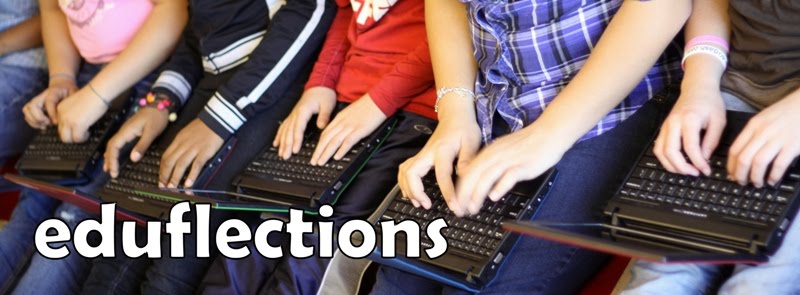This year, I have been very fortunate to work with an extremely talented and confident team of experienced and passionate teachers. Each member has an area of speciality that they bring to the group as we move towards providing our students the best learning possible. However, in any group there is always the possibility that our viewpoints and perspective will not always align with one another's.
During the first semester, our team leader, Lindsay Kilgore (@lindsaykilgore on Twitter), suggested that we create a unified goal as a group of 6th grade teachers. Through this discussion, we were able to share our own vision for our students and the grade level, giving all of us an insight into each other's perceptions. Being a new member of the team this year, our creating of the goal gave me the opportunity to understand my team members and feel like an integral part of the team. All of us agreed that student learning needed to be our driving force. I believe that the process of writing this goal is what solidified us as a true team and laid a foundation for further discussions.
I admired how much research that Lindsay did on communication, conflict resolution, and professional goal setting. Another team member suggested that it would be helpful for us to take a personality test so that we could understand one another on a deeper level when working closely with one another. Lindsay sent us the article Personality Types: Using Personality Assessments to Identify Your Strengths (and Understand Your Co-Workers). In that article is a link to the Myers Briggs Type Indicator that we each took and sent the results to her to compile. During the time that we took the personality test, many of us were surprised at not only how accurate the explanation of our type actually was for ourselves, but also at how different some of our colleagues were in reality than we had perceived them. In spite of regular conversations, team meetings, and collaborative projects, it became apparent that there were some crucial personality characteristics that we each needed to take into consideration.
Lindsay compiled all of our information and distributed at our team meeting. She included tips for how
 |
| Photo by Peggy2012CREATIVELENZ |
Another conversation that we had as a team was discussing conflict: what sets us off, how we deal with conflict, and how we want to resolve the disagreement. It became very apparent that not understanding these elements could potentially cause a problem. For example, if one individual deals with conflict considerably different than another in the team, that could exponentially escalate the conflict. This kind of issue could hinder the true point of conflict, which is resolution. Knowing this about one another helps each of us to understand what to expect of each individual and proceed in the manner that fits their personality.
Out of the conflict dialogue grew a discussion on where we wanted to be as a team professionally...our professional goals as a team. This conversation showed that some team members wanted to focus all their efforts in their classroom while others wanted to pursue National Board Certification, writing for professional education organizations, building a model school for lab experiences, coaching fellow teachers, or presenting at conferences. This opens the door to ongoing conversation as we continue to teach together. Knowing an individual's goal helps you to understand actions you might have misunderstood (A lesson that easily applies to our students.).
Conflict is difficult. Conflict among great and passionate teachers can take a great place to teach and make it unbearable. Opening up the dialogue, being honest and kind can lay a strong foundation before conflict arises. It builds strong relationships based on trust and mutual respect. And, when you really think about it, the true beneficiaries of handling conflict with professionalism and integrity are our students...the ones that it's all really about.
PS- Next week, at our team meeting, we will be creating norms for our group. Stay tuned!


No comments:
Post a Comment